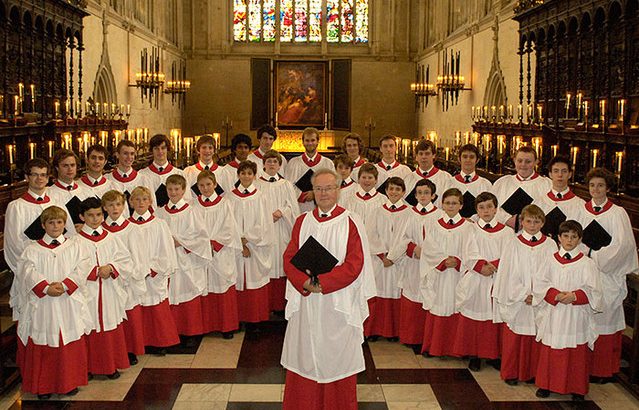The Notebook
Fr Conor McDonough
The choir of King’s College, Cambridge is often associated with the Christmas season. For many of my English friends, the sound of Carols from King’s on the BBC on Christmas Eve is the sign that Christmas has well and truly begun. But I associate them above all with the season of Advent.
In December 2003 I was 17 years old, coming to the end of my first term studying Natural Sciences at Cambridge. I was overwhelmed by all the intellectual demands being placed on me and was just about getting used to living as a Catholic in a largely non-believing context. The Anglican chaplain at the college had already spotted me as one of the few Christians in first year, and very kindly invited me to carry a candle in the Advent procession.
I had no idea of the beauty that awaited me. At the beginning of the Advent procession the great chapel lay in darkness. The famous fan vaulting, the straw-coloured stonework, the Rubens ‘Nativity’: all of these treasures were hidden in obscurity. Then, the enormous West Door was opened, and a single light silently entered the expectant darkness, leading the choir whose chant began to fill that vast space. Throughout the next hour, as we moved very slowly from West to East, the light spread as progressively more candles were lit. The choir sang hymns and Latin chant and carols, all unfamiliar to my untrained ear, and all adorning with unspeakable beauty the same themes: expectancy, longing, waiting, hope.
For me, that night was an awakening, at once spiritual and aesthetic, and I have been deeply attached to the music of Advent every since. Just think of the great Advent hymn, ‘O Come, O Come, Emmanuel’, a meditation in song on the prophetic titles of Christ: ‘Emmanuel’, ‘Rod of Jesse’, ‘Daystar’. Consider the raw hunger for God’s presence expressed in lines like: ‘O come, O come Emmanuel,/and ransom captive Israel/That mourns in lonely exile here,/Until the Son of God appear’. And think of the warming hope that answers that hunger: ‘Emmanuel will come to thee, O Israel’.
Atmosphere
The whole atmosphere of Advent music is in diametric opposition to the consumer culture, a culture which cannot wait for Christmas, and wants to pre-empt the feast for a whole two months, co-opting it for the purposes of profit.
If we Christians are really trying to ‘live’ the season of Advent, it’s easy to be outraged by the constant playing of tinny Christmas soundtracks in our shops from Hallowe’en onwards, and it’s easy to waste a lot of energy complaining about this state of affairs.
For my part, I’ve found it’s best to give no energy to outrage, and to invest instead in cultivating an Advent spirit by deliberately and intentionally listening to a great deal of Advent music. Many of my friends do the same, and in the age of the internet, it’s easily done.
You could start by finding a nice version of ‘O Come, O Come Emmanuel’, then try out some classics: ‘O Come Divine Messiah’, ‘Let All Mortal Flesh Keep Silence’, ‘Gabriel’s Message’, ‘Creator of the Starry Height’. If you like Latin chant look up the ‘O Antiphons’, the ‘Rorate Caeli’ and the ‘Alma Redemptoris Mater’. If you prefer contemporary music check out Matt Maher’s ‘Love Comes Down’ and Chris Tomlin’s ‘Even So Come’. And if you want to go really high-brow, have a listen to Bach’s ‘Advent cantatas’ and William Byrd’s ‘Vigilate’.
There’s an ocean of good Advent music: let’s open our hearts to its message of hope.
*****
Emmanuel will come
Listening to the right music helps if you want to cultivate an Advent spirit, but just as important is the practice of entering into silence every day. It’s easier said than done, and it’s best to set a limited goal, like starting the day with five minutes of silence, or ending the day by turning all the lights and devices off, lighting a candle, and simply sitting in the presence of God for a few moments.
The neon lights on our streets are shouting: “Buy, buy, buy!” Our best and most subversive response is simply to be: to be still in the presence of God, and to allow our soul’s deep desires reach out to him in hope. ‘Emmanuel will come…’


 Choir of King’s College, Cambridge
Choir of King’s College, Cambridge 
